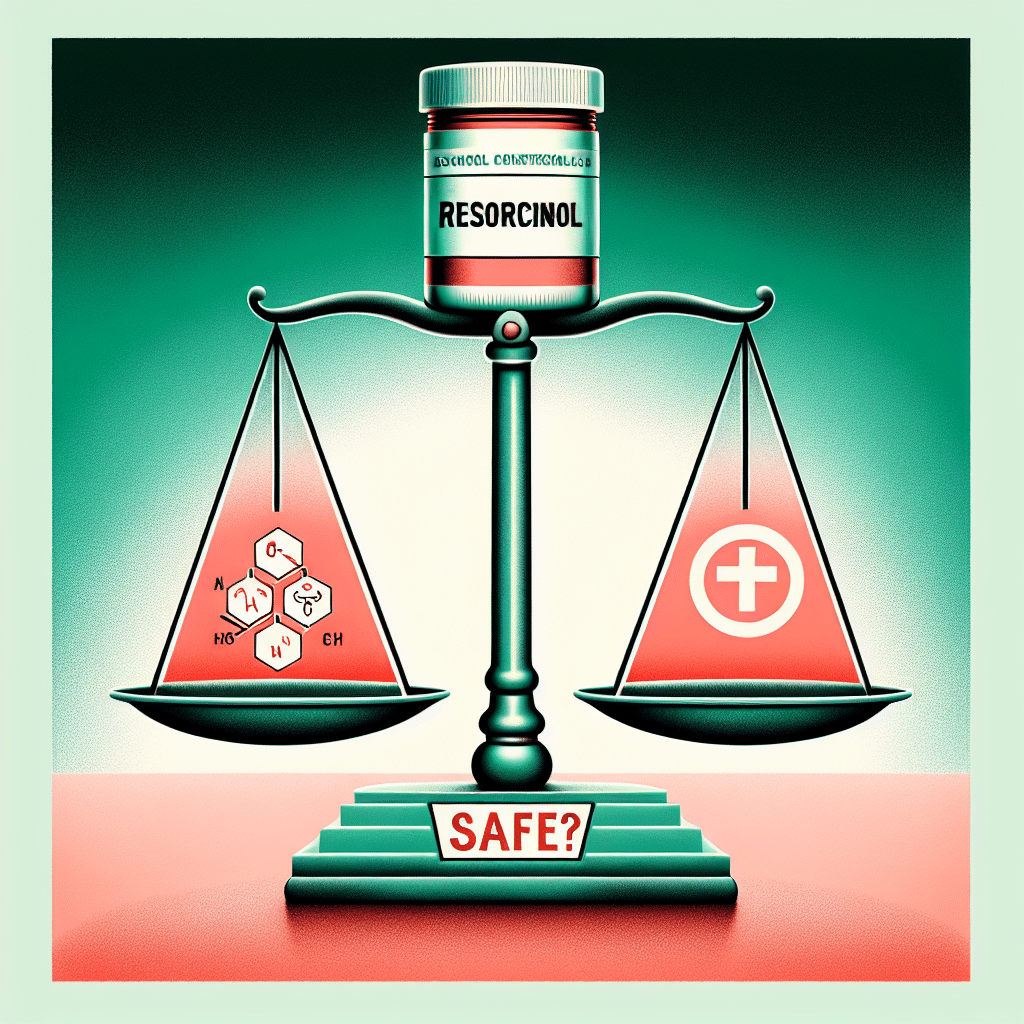Is Resorcinol Safe? Safety Profile
-
Table of Contents
- Resorcinol Safety Profile: Understanding Its Use and Effects
- What is Resorcinol?
- Applications of Resorcinol
- Health Concerns and Safety Regulations
- Endocrine Disruption
- Thyroid Function
- Skin Irritation
- Regulatory Guidelines
- Assessing the Risks: Case Studies and Research
- Case Studies on Occupational Exposure
- Cosmetic Product Safety Assessments
- Toxicological Research
- Safe Use of Resorcinol in Products
- Conclusion: Balancing Utility and Safety
- Discover ETchem’s Protein Products
Resorcinol Safety Profile: Understanding Its Use and Effects
Resorcinol is a chemical compound that has found its way into various industries due to its unique properties. It is commonly used in the production of resins, dyes, plastics, pharmaceuticals, and as an active ingredient in hair dyes and topical skin treatments. However, with its widespread use, concerns regarding its safety have emerged. This article delves into the safety profile of resorcinol, examining its effects and the regulations surrounding its use.
What is Resorcinol?
Resorcinol is a dihydroxybenzene, a type of phenol, which is a white crystalline compound with a slight sweet odor. It is soluble in water, alcohol, and ether. Its chemical properties make it valuable in various applications, particularly in binding agents, adhesives, and as a chemical intermediate in the synthesis of other compounds.
Applications of Resorcinol
- Pharmaceuticals: Used in antiseptics and disinfectants.
- Personal Care: Found in acne treatments, hair dyes, and skin lightening products.
- Industrial Uses: Integral in the production of tires, wood adhesives, and flame retardants.
Health Concerns and Safety Regulations
Despite its utility, resorcinol has been scrutinized for potential health risks. The primary concerns revolve around its endocrine-disrupting potential and its effects on the skin and thyroid function. Regulatory bodies such as the U.S. Food and Drug Administration (FDA) and the European Chemicals Agency (ECHA) have set guidelines and restrictions on the use of resorcinol to mitigate these risks.
Endocrine Disruption
Studies have suggested that resorcinol may have endocrine-disrupting effects, which could interfere with hormone function. This has raised concerns about its use in consumer products that come into direct contact with the skin.
Thyroid Function
Research indicates that high levels of resorcinol exposure may affect thyroid function, leading to disorders such as hypothyroidism. This is particularly concerning for individuals with prolonged exposure to resorcinol-containing products.
Skin Irritation
Topical application of resorcinol can cause skin irritation, redness, and peeling. It is crucial for products containing resorcinol to be formulated at safe concentrations to minimize these effects.
Regulatory Guidelines
Regulatory agencies have established safe concentration limits for resorcinol in various products. For instance, the FDA allows resorcinol to be used in over-the-counter acne medications at concentrations up to 2%. In hair dyes, the European Union restricts its concentration to 0.5% to 2%, depending on the product type.
Assessing the Risks: Case Studies and Research
To understand the safety profile of resorcinol, numerous studies and case reports have been conducted. These investigations provide insights into the potential risks and safe levels of exposure.
Case Studies on Occupational Exposure
Workers in industries that use resorcinol extensively, such as tire manufacturing, have been subjects of studies to assess the long-term effects of exposure. These studies have helped establish occupational safety standards.
Cosmetic Product Safety Assessments
The Cosmetic Ingredient Review (CIR) in the United States regularly evaluates the safety of ingredients used in cosmetics, including resorcinol. Their findings contribute to the formulation guidelines for personal care products.
Toxicological Research
Toxicological studies on animals have been instrumental in determining the effects of resorcinol on various biological systems. These studies form the basis for establishing exposure limits and safety precautions.
Safe Use of Resorcinol in Products
While there are concerns about the safety of resorcinol, it can be used safely when manufacturers adhere to regulatory guidelines. Consumers can also take steps to minimize risks:
- Follow product instructions carefully, especially for hair dyes and skin treatments.
- Avoid using multiple products containing resorcinol simultaneously to prevent cumulative exposure.
- Be aware of any skin reactions and discontinue use if irritation occurs.
Conclusion: Balancing Utility and Safety
Resorcinol is a versatile compound with a wide range of applications. While there are valid concerns about its safety, current research and regulations aim to ensure that products containing resorcinol are safe for consumer use. By adhering to guidelines and being mindful of exposure, the benefits of resorcinol can be harnessed without compromising health and safety.
Discover ETchem’s Protein Products
In addition to understanding chemical safety profiles, it’s essential to explore high-quality protein products for various applications. ETchem offers a range of superior collagen products suitable for nutraceutical, pharmaceutical, and cosmeceutical industries. Their commitment to quality and customer satisfaction makes them a top choice for your protein needs.
About ETChem:
ETChem, a reputable Chinese Collagen factory manufacturer and supplier, is renowned for producing, stocking, exporting, and delivering the highest quality collagens. They include marine collagen, fish collagen, bovine collagen, chicken collagen, type I collagen, type II collagen and type III collagen etc. Their offerings, characterized by a neutral taste, instant solubility attributes, cater to a diverse range of industries. They serve nutraceutical, pharmaceutical, cosmeceutical, veterinary, as well as food and beverage finished product distributors, traders, and manufacturers across Europe, USA, Canada, Australia, Thailand, Japan, Korea, Brazil, and Chile, among others.
ETChem specialization includes exporting and delivering tailor-made collagen powder and finished collagen nutritional supplements. Their extensive product range covers sectors like Food and Beverage, Sports Nutrition, Weight Management, Dietary Supplements, Health and Wellness Products, ensuring comprehensive solutions to meet all your protein needs.
As a trusted company by leading global food and beverage brands and Fortune 500 companies, ETChem reinforces China’s reputation in the global arena. For more information or to sample their products, please contact them and email karen(at)et-chem.com today.





